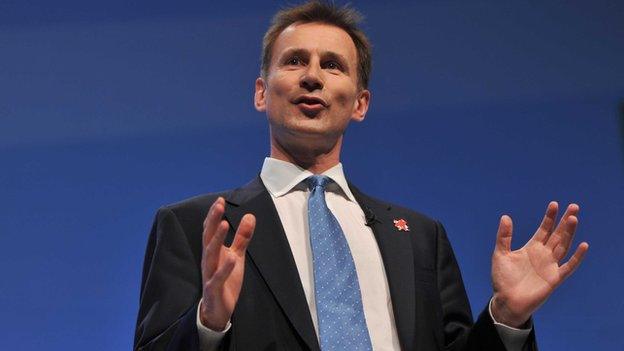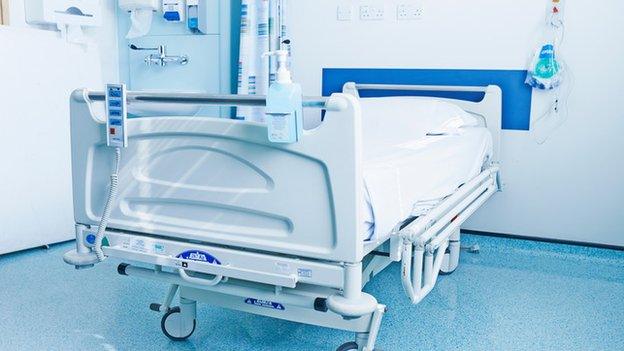What's in the new NHS boss's in-tray?
- Published
- comments
Simon Stevens is starting his first day as chief executive of NHS England.
It marks his return to the NHS fold after a decade with the US firm United Healthcare where he has been overseeing its global arm.
But his appointment to the £211,000-a-year post comes at a crucial time in the history of the health service. So what's in his in-tray?

Money worries

The NHS may be one of the few areas of the public sector to have its budget protected - it is rising by 0.1% a year on average in this Parliament - but it is still facing some tough economic choices.
In fact, as the BBC is reporting, Mr Stevens is making money a central theme of his first speech as head of the health service.
He is expected to say navigating the next few years will require the "biggest effort" in the history of the NHS.
It is easy to understand why. The NHS is in the middle of an unprecedented £20bn savings drive.
But it is proving tough going. The early indications are that the hospital sector will finish the 2013-14 year in deficit - the first time that will have happened in eight years.
It means there will need to be some tough choices ahead about what can and cannot be provided.

Keeping Hunt hands-off

It is a year since the NHS reforms came into place. One of the stated goals was to give the health service a degree of independence from the secretary of state.
Hence the creation of the organisation Mr Stevens now leads.
But of course the architect of the reforms, Andrew Lansley, is no longer in place and his successor, Jeremy Hunt, seems to have other ideas.
From announcements about financial incentives for trusts to get their staff vaccinated against flu to last week's speech about patient safety when he set out new goals for reducing avoidable harm, Mr Hunt has left himself open to accusations that he is encroaching on NHS England's territory.
Indeed, a recent article, external by The Guardian accused him of being a "control freak" and "micromanaging" the health service.
It is likely to require all Mr Stevens' political nous to keep NHS England independent while remaining on good terms with his political boss, especially with an election round the corner.

Spreading happiness

Singer Pharrell Williams may be happy, but for staff in the NHS it seems to be a different matter.
After several years of pay freezes, the government has rejected recommendations that they be given an across-the-board rise.
Instead, ministers announced last month they would only give a 1% pay rise to those who would not get a "progression-in-the-job" increase - about half the workforce.
The move has disappointed unions with talk already turning to industrial action.
This matters because research shows that happy staff provide good quality care.
After the Stafford Hospital scandal, that is the number one priority for the health service.

Digging NHS England out of a hole

Most people are agreed that the NHS should use the information it is able to gather as a universal, national health system to aid medical research.
But the scheme designed to do just that - the Care.data database - has been mired in controversy.
NHS England was forced to delay its implementation until the autumn after concerns about patient confidentiality and the way it had been communicated.
It will now be up to Mr Stevens to help the organisation find a way out of the mess it has created for itself.

Putting his own stamp on the system

In many respects, he arrives at an odd time. NHS England is already a year old and has published proposals for major changes to hospitals (a two-tier system of major and minor units) and weekend working.
Meanwhile, ministers have taken a lead on joined-up care to address the needs of the ageing population (the £3.8bn Better Care Fund will be launched in 2015 to encourage greater partnership between social care and the NHS).
These are arguably the most pressing issues of the time - and it will be up to Mr Stevens to help ensure plans set out by other people are successful.
So how can he make his mark? In terms of hospital reconfiguration and joined-up care, his advantage is that there has been talk for years about how this is needed but little progress.
With money tight, the NHS now has no excuses. If he can make it happen, he could go down in history as one of the great reforming health service leaders.